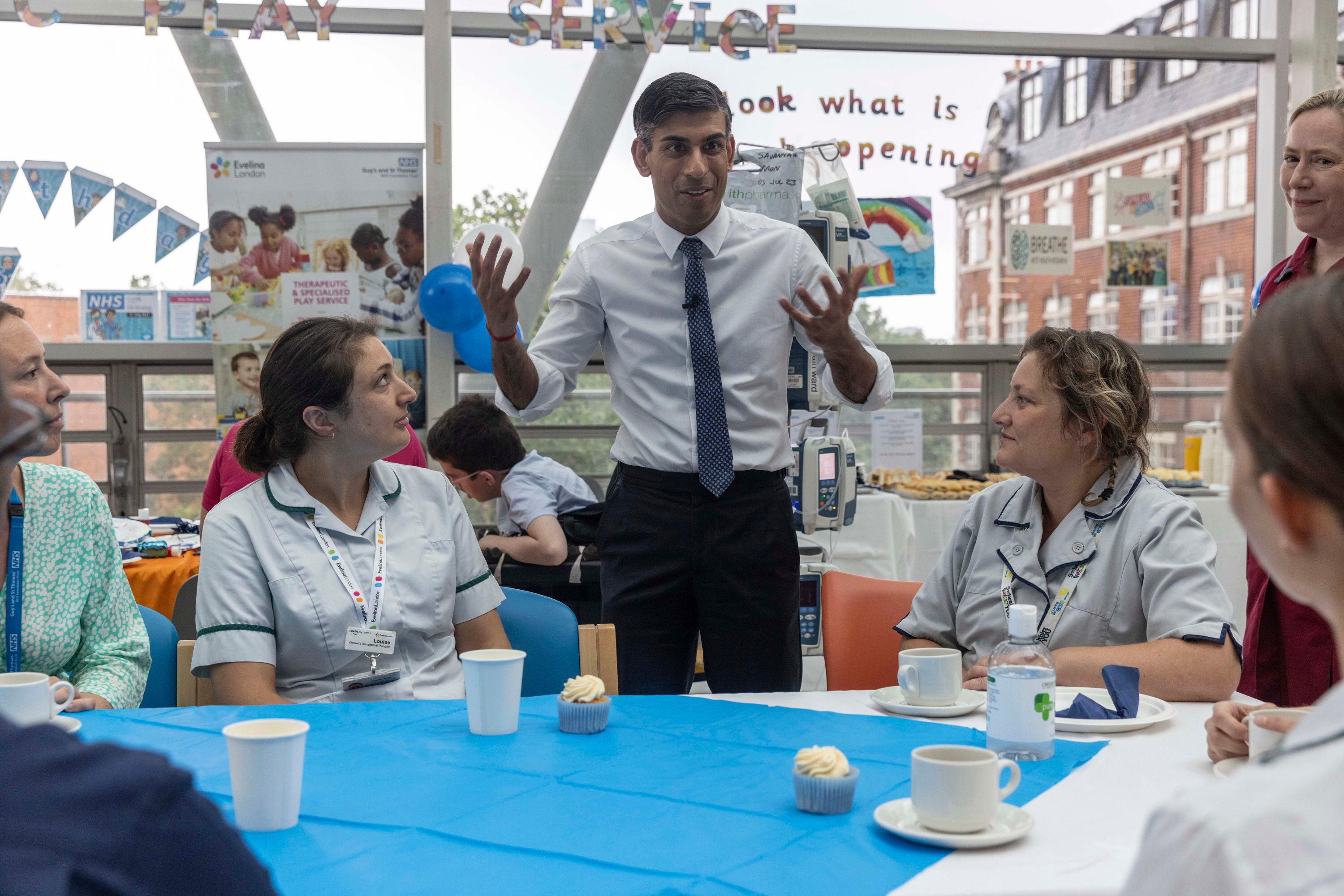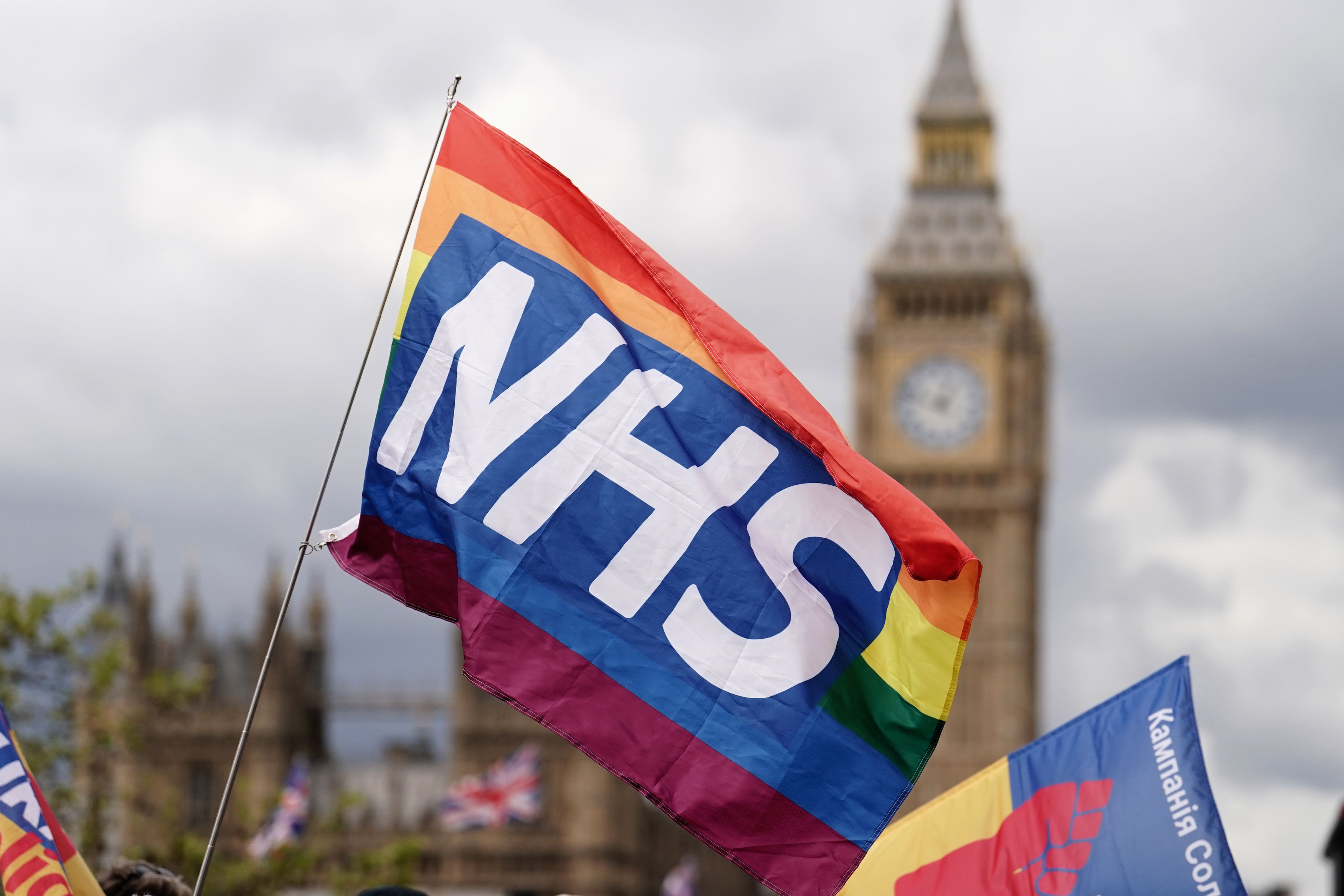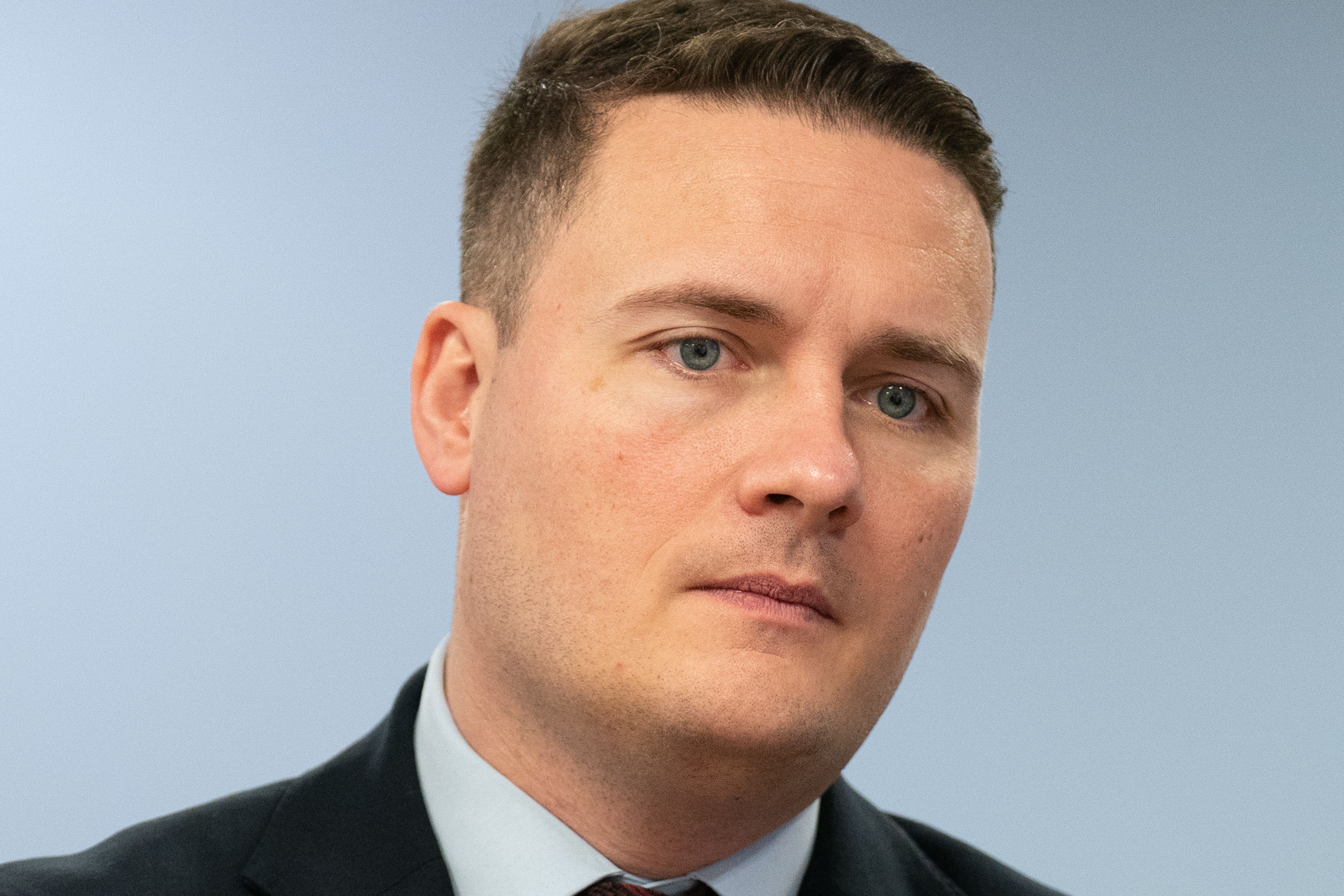‘Vanishingly small’ chance Sunak can cut NHS waiting lists by election, warn experts
PM on course to break his promise after his other big pledges thrown into doubt
Rishi Sunak is unlikely to deliver on one of his five key pledges to voters as experts warned his government’s chances of cutting NHS waiting lists by the general election were “vanishingly small”.
The prime minister has come under increasing pressure in recent weeks as inflation spiralled despite his promise to cut it by half, while the Court of Appeal ruled against his controversial Rwanda plan that Tories say will help stop small boat Channel crossings.
Now, on the 75th anniversary of the NHS, his major pledge on the health service – to cut waiting lists – is under threat, with his own Deaprtment of Health minister admitting the numbers were going in the wrong direction.
Maria Caulfield conceded that the record number of Britons now waiting for treatment – which rose from 7.2 million to 7.4 million in April – “probably will go up higher”.
Mr Sunak’s office appeared to try to shift the target by focusing on longer-term waiting times. But two leading health think tanks told The Independent the PM was “highly unlikely” even to meet his promise to eliminate one-year waiting times by spring next year.
The Health Foundation said the chances of cutting the overall waiting lists by the vote expected in autumn 2024 were “vanishing small”, while the King’s Fund said overall waiting lists would probably “continue to rise between now and the next general election”.
Opposition parties said the PM’s crucial NHS pledge “looks set for the scrapheap” and accused ministers of “moving the goalposts” by focusing on reducing the very longest waiting times.
Setting out his five promises to the British people in January, the PM said voters could judge him on his promise to cut waiting lists. Mr Sunak also promised: “By spring of next year, we will have practically eliminated those waiting over a year.”
Downing Street insisted that Mr Sunak was sticking by his pledge to bring the overall number down, having promised to do so when the overall number was at 7.2 million.

But No 10 backed Ms Caulfield’s apparent shift in focus to the backlog of people waiting the very longest times. “To patients, what matters is how long they’re waiting,” she told Sky News. “They’re not really worried about who else is on the waiting list.”
The PM’s spokesperson said: “We are rightly focusing on those waiting the longest – so those waiting two years, 18 months and now one year, and we are making progress on all of those.”
But health experts said current pressures on the NHS were working against the PM on all his big targets – including the commitment to wipe out one-year waits for treatment by spring 2024.
Tim Gardner, senior policy fellow at the Health Foundation, told The Independent: “It’s quite likely the overall waiting list will increase – it’s certainly going in the wrong direction. There are so many factors making it very hard to reduce.”
Mr Gardner cited ongoing strikes and winter pressures to come, along with a decade of austerity squeezing NHS budgets and the failure over a long period to address the staffing crisis. “It will reduce the capacity to expand operations,” he said.

An estimated 371,000 people in England had been waiting more than a year to start routine hospital treatment – up from 359,000 – at the end of March. Mr Sunak has already missed a key target of eliminating 18-month waits by the end of March, though the number did fall from its peak of 124,000 to just over 11,000.
Siva Anandaciva, chief analyst for the King’s Fund, said the target of eliminating one-year waiting times by spring was “not going to be accomplished”, but said he expected “considerable progress” on the longest waiting times.
“My best guess is that waiting lists will continue to rise between now and the next general election. The long waits will come down, but eliminating long waits won’t be achieved,” he said.
Dr Rob Findlay, an independent specialist in NHS waiting times, said the “underlying pressures on waiting times have not been improving overall”, adding: “The remaining targets to be achieved in the next year or so are going to be much more difficult than the ones that have already been missed.”
Labour was scathing about Ms Caufield’s admission that waiting lists would rise this year, and her claim Britons were “not really worried” by the overall size of the treatment backlog.

Wes Streeting, shadow health secretary, said: “The NHS turns 75 during the biggest crisis in its history, and the Conservatives admit it is going to get even worse. The minister is wrong – people are ‘really worried’ about the record-long waiting lists in the NHS today.”
Daisy Cooper MP, Liberal Democrats’ health spokesperson, said: “Conservative ministers are moving the goalposts on NHS waiting lists, as yet another one of Rishi Sunak’s five pledges looks set for the scrapheap … they have no-one to blame but themselves.”
In a joint letter to Mr Sunak and Labour leader Keir Starmer, the King’s Fund, the Health Foundation and the Nuffield Trust said the NHS was in a “critical condition” and would not make it to 100 years without significant investment.
Mr Sunak appeared to blame strikes for putting his targets at risk this week. Asked on Tuesday whether junior doctors’ move to extend potential strike action until January 2025 would have an impact on his big NHS pledge, the PM said: “Clearly, industrial action by other clinical staff does make it more challenging to bring down waiting lists.”
It came as a Tory health minister suggested that a controversial plan to fine people for missing GP appointments could be included in the Tory general election manifesto.
Ms Caulfield said there was a “good argument for it”. Asked if the policy could potentially be in the party’ manifesto, she told ITV: “Potentially, yes.”
Meanwhile, Sir Tony Blair used the 75 th anniversary to warn that the NHS would “continue down a path of decline” without greater involvement of the private sector.
The former Labour PM said patients should be allowed to pay to speed up access to healthcare, and said the NHS App has opened the door to partnership with the private sector in “ways that were not possible before”.
But Mr Streeting made it clear that he “does not agree” with Sir Tony’s suggestion that some people should be able to pay to use NHS services. The shadow health secretary said the UK “already has a two-tier system”, adding that “people who can afford it are paying to go private and those who can’t are being left behind”.
Join our commenting forum
Join thought-provoking conversations, follow other Independent readers and see their replies
Comments





Bookmark popover
Removed from bookmarks